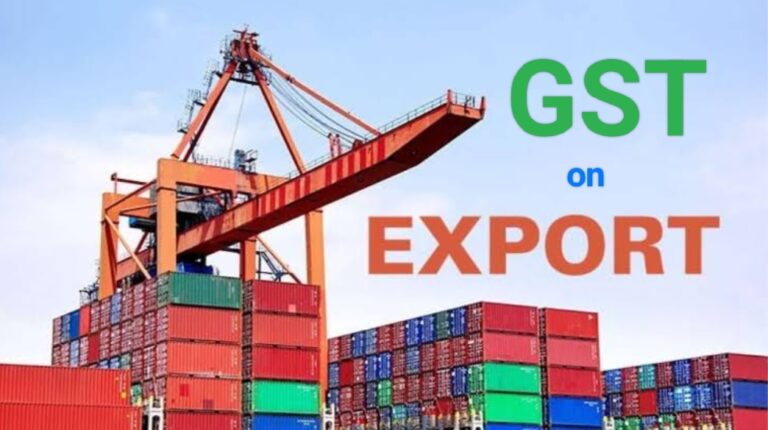Unlocking the GST Provisions and Benefits on Exporting Goods from India
India stands tall as a global leader in both exporting goods and services. For businesses, regardless of size, exporting presents a myriad of advantages. One of the most appealing benefits is the access to an expansive global market, offering a plethora of potential customers. Exporting broadens horizons, reaching far beyond local limitations, and opens doors to new growth opportunities.
The Goods and Services Tax (GST) implementation in India marks a significant stride by the Government. Under GST, exports are classified as zero-rated supplies, granting exporters the eligibility to claim refunds on the GST paid on inputs—be it materials or goods acquired for the production of the final product.
All exports fall under the category of inter-state supplies. To streamline the process for exporters, documentation and licensing procedures have transitioned to an online, paperless format, ensuring hassle-free international shipping.
Steps to Successfully Export Goods:
- Obtain a Valid GST Registration: Register through the GST portal to get started.
- File for a Shipping Bill: An application for a shipping bill for export is crucial.
- Declare Exports on GST Returns: Declare exports via the GSTR-1 form on GST returns.
- Payment of IGST and Refund Request: Prior to requesting a tax refund, exporters must pay the Integrated Goods and Services Tax (IGST) on shipments. This can be initiated by submitting either the RFD-01A or GSTR-3B form.
- Generate an E-Way Bill: Before exporting goods, ensure to generate an E-way bill detailing the quantity, value, and destination of the products.
Ways to Claim GST Refund on Export:
Exporting businesses in India are treated as zero-rated under GST, exempting them from GST on exports. The refund of GST paid on inputs can be claimed through two methods:
- Export under Bond/Letter of Undertaking (LUT): Exporters can export without tax payment by submitting a bond/LUT and claim a refund of Input Tax Credit (ITC).
- Payment of IGST with ITC: Exporters can pay IGST using ITC during export and then claim a refund of the IGST paid.
Essential Documents for Claiming ITC on Export of Goods under GST:
Registered exporters can avail Input Tax Credit (ITC) by furnishing FORM GSTR-2. The necessary documents include:
- Supplier-issued invoice as per GST Section 31 provisions
- Debit note from the supplier
- Bill of entry
- Document from the Input Service Distributor complying with GST rules
Claiming a GST Refund on Export under LUT:
A Letter of Undertaking (LUT) is a vital document filed by exporters, allowing tax-free exports if export conditions are met. As per Notification No. 37/2017-Central Tax, filing LUT for exporting goods and services is mandatory. Without an LUT, exporters must pay IGST.
Filing Process for LUT (Letter of Undertaking):
As per the Central Goods and Service Act 2017, exporters must submit an LUT to export goods and claim a GST refund. Once filed, the LUT remains valid for the financial year, streamlining subsequent export consignments. The process can be easily completed on the GST portal.
Deemed Exports under GST:
In the competitive landscape of global trade, Indian suppliers of services and manufacturers of goods often find themselves vying against foreign counterparts, with bids evaluated without factoring in customs duty. These transactions, funded for specific projects with free foreign exchange, fall under the category of ‘deemed exports’. This term encompasses supplies of goods and services that stay within the country, with payments received in Indian Rupees, even though no physical export occurs. The key condition is that the goods must be manufactured or produced in India.
The Foreign Trade Policy 2015-2020 outlines several scenarios that qualify as ‘deemed exports’, including:
- Supplies to Export Oriented Units (EOUs), Software Technology Parks (STPs), Electronic Hardware Technology Parks (EHTPs), and Biotechnology Parks (BTPs)
- Supplies against Advance Authorisation/ Duty-Free Import Authorisation (DFIA)
- Supply of goods to mega power projects following International Competitive Bidding
- Supplies to United Nations Agencies
- Supply of goods to nuclear projects through competitive bidding
- Supply of marine freight containers
- Supplies against Export Promotion Capital Goods (EPCG) authorisation
- Supplies to projects awarded through international competitive bidding
- Supplies to projects with zero customs duty
Conclusion:
Exporting goods from India under the GST regime offers a world of opportunities for businesses, coupled with simplified procedures and efficient refund mechanisms. Harnessing these benefits can propel businesses to new heights in the global market landscape.
To Know More about the process of refund of ITC from Export CLICK HERE
Also Read: Bar Council of Kerala Taken its Case against GST Notices to Kerala High Court
Read More
Bombay High Court Strikes Down Penalty of Rs 3731 Crore on Employees
GSTN Issued Advisory 628 pertaining to Self-Enablement for E-Invoicing under GST
